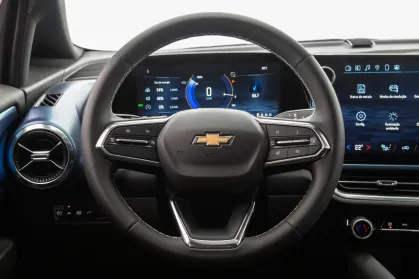In 2024, the automotive industry is undergoing a revolutionary shift as electric vehicles (EVs) and hybrids continue to gain traction over traditional gasoline-powered cars. According to Bloomberg Green, global sales of EVs surged by 40% in 2023, showcasing the growing consumer interest in sustainable transportation. As we stand on the brink of another transformative year, many consumers are wondering: “Is it time to switch to an EV, stick with a hybrid, or hold onto my trusty gas-powered vehicle?” This article will explore the latest market trends, dissect the pros and cons of each vehicle type, and equip you with the information you need to make an informed decision.
Understanding the 2024 Market Trends
The Rise of Electric Vehicles (EVs)
The electric vehicle market is booming, with more options than ever before. Major manufacturers like Tesla, Rivian, and BYD are leading the charge with innovative models and cutting-edge technology. Here are some key trends to watch out for:
- Increased Range and Efficiency: Thanks to advancements in battery technology from companies like Tesla and Lucid Motors, EVs are now capable of traveling over 400 miles on a single charge, making range anxiety a thing of the past.
- Expanding Infrastructure: According to InsideEVs, the number of charging stations worldwide is expected to grow by 25% in 2024, with new fast-charging networks cropping up globally.
- Government Incentives and Regulations: Many countries, especially in Europe and North America, are implementing stricter emission regulations and offering tax incentives for EV purchases, boosting consumer interest.
Hybrids: The Best of Both Worlds?
Hybrids, which combine a gasoline engine with an electric motor, offer a middle ground for those not ready to go fully electric. Here’s why they’re still relevant:
- Fuel Efficiency: Hybrids like the Toyota Prius and Hyundai Ioniq deliver excellent fuel economy, often exceeding 50 miles per gallon (mpg).
- Lower Emissions: While not as green as EVs, hybrids produce significantly lower emissions compared to traditional gas cars.
- Versatility: With both an electric motor and a gasoline engine, hybrids provide flexibility, especially in areas with limited charging infrastructure.
The Persistence of Gasoline Cars
Despite the rise of EVs and hybrids, gasoline-powered cars have not disappeared. Here’s why they still hold a place in the market:
- Infrastructure Availability: Gas stations are ubiquitous, making gas cars convenient for long-distance travel without the need for charging stops.
- Lower Initial Costs: Traditional gas vehicles often have a lower upfront cost compared to EVs and hybrids, appealing to budget-conscious buyers.
- Wide Range of Models: From compact sedans to powerful trucks, gasoline vehicles offer a variety of choices to suit different needs.
Practical Tips for Potential Buyers
How to Choose the Right Vehicle
When deciding between an EV, hybrid, or gas car, consider the following factors:
- Driving Habits:
– If you frequently drive long distances, a hybrid or gas car might be more convenient.
– For city commuters, an EV could be ideal due to lower running costs and environmental benefits.
- Budget:
– Factor in the total cost of ownership, including fuel, maintenance, and potential incentives.
– Check for government rebates or tax credits for EVs in your area.
- Environmental Impact:
– Opt for EVs or hybrids if reducing your carbon footprint is a priority.
Where to Buy and What to Compare
- EVs: Tesla, Rivian, and Ford EV dealerships offer test drives and purchasing options. Explore online platforms like AutoTrader for used EV deals.
- Hybrids: Toyota, Hyundai, and Ford offer a range of hybrid models. Compare fuel efficiency and price points.
- Gas Cars: Visit local dealerships or explore certified pre-owned programs for a range of gasoline models.
Engaging Conclusion: What Lies Ahead?
The automotive landscape is rapidly evolving, driven by technological advancements and changing consumer preferences. As EVs become more mainstream and hybrids continue to offer a compelling alternative, the future of transportation looks electric and efficient. Whether you’re drawn to the cutting-edge features of EVs, the versatility of hybrids, or the familiarity of gas cars, the choice ultimately depends on your lifestyle and priorities.
Are you ready to embrace the future of mobility? Share your thoughts and let us know which type of vehicle you’re considering for your next purchase. As we venture further into 2024, one thing is certain: the road ahead is electric and full of possibilities.

